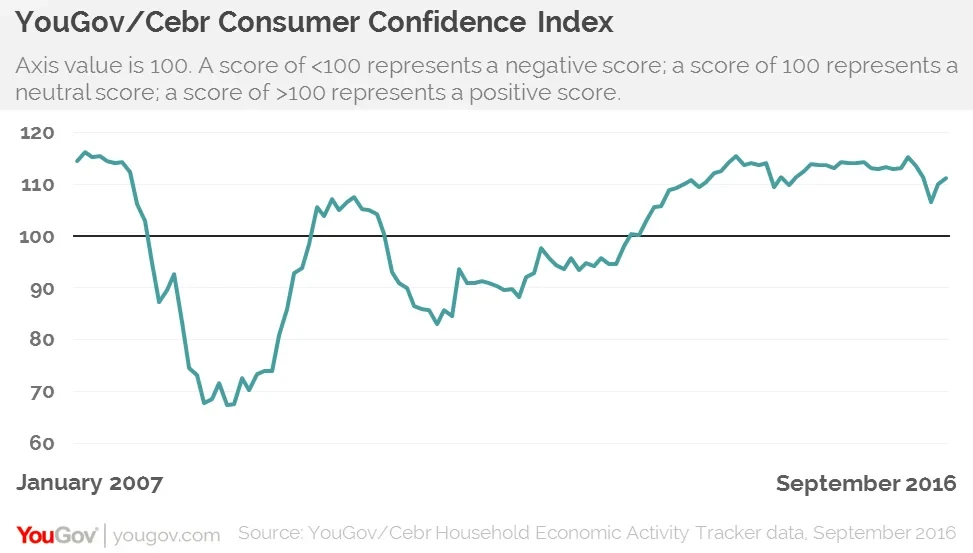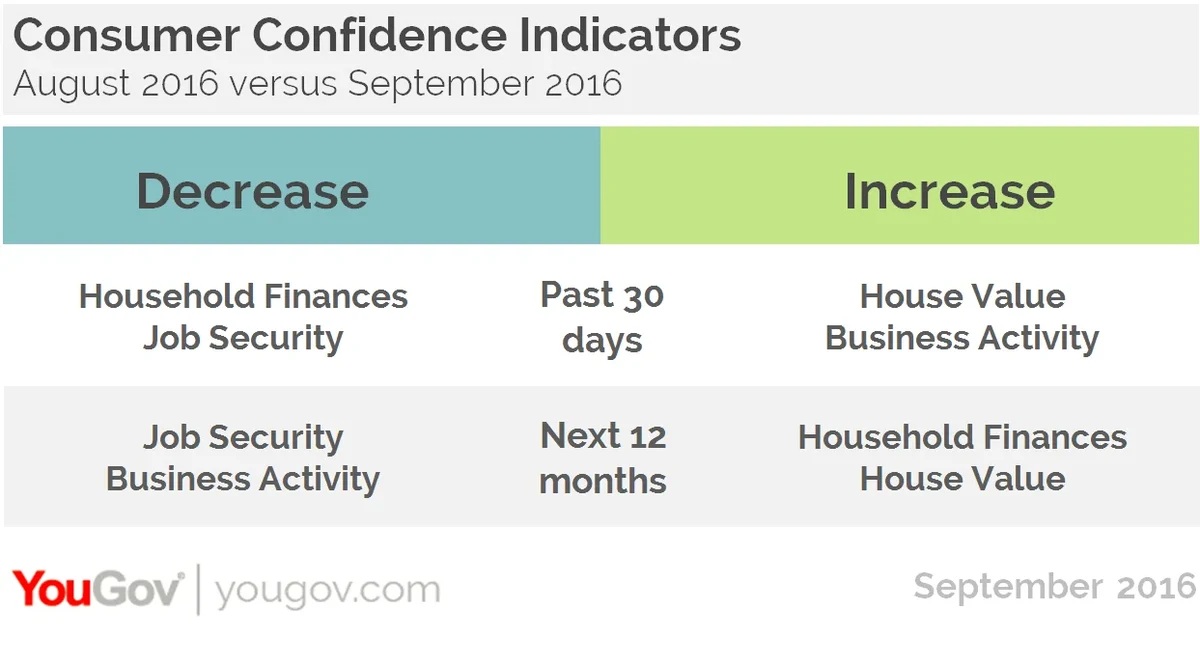Though the economy is showing few signs of a Brexit-induced slowdown, consumers haven't quite regained their pre-referendum confidence
After the surge in consumer confidence in the past couple of months, this month’s YouGov/Cebr Consumer Confidence Index suggests some of the steam may be coming out of the rebound. Our analysis with Cebr shows that while consumer confidence continues to recover the ground it gave up in the direct aftermath of the Brexit vote, it has not yet made up all of the losses it suffered in the month following the referendum.
This month’s YouGov/Cebr Consumer Confidence Index stands at 111.1, an increase of 1.0 points on August’s figure. Although the Index has increased by 4.5 points since its July nadir, it is still more than two points shy of the pre-Brexit score. In May, the last full-month figure before the referendum, it was 113.6.

September’s modest improvement in consumer confidence follows a barnstorming rebound in August, when seven of the eight underlying measures rose. This month’s improvement is more tempered because the underlying measures are much more of a mixed bag, with four improving and four declining.
Job security and household finances have both decreased over the past month while people are more pessimistic about business activity in their workplace over the year ahead. The figures for job security over the next 12 months is at its lowest level since February and its second lowest level in 20 months.
Yet overall consumer confidence has improved because these falls have been matched and bettered by the improvements in the four remaining measures. House values and business activity over the last 30 days have improved while people’s expectations for their household finances and house values in the year ahead have also strengthened notably.

This month’s numbers also hint at what’s on the horizon. Confidence was dented by the panic that gripped the country in the days following the referendum but since then all the data points to a steadying of the ship. From consumers’ perspectives very little has materially changed since the vote to leave the EU.
However, there is a duality in their mind set – at the moment things are ok but there could be a slowdown in the year ahead. The business activity and job security figures for the coming 12 months imply that consumers are starting to factor in Article 50 being triggered in the next year. This suggests that the referendum’s impact on the economy has been deferred for the time being rather than averted entirely.
Find out more about YouGov Reports
Image from PA







